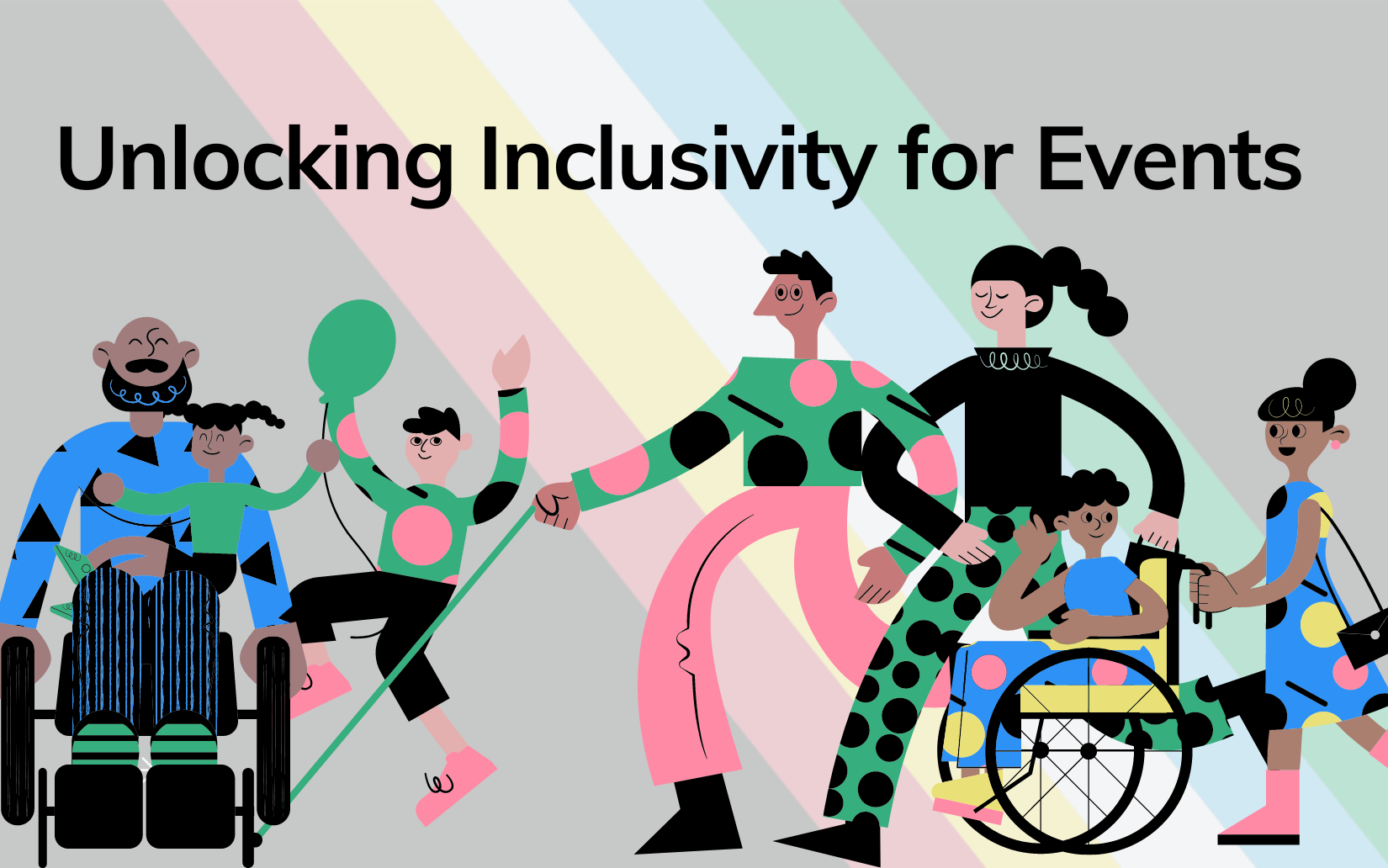Unlocking Inclusivity: 5 Key Takeaways from Experts on Accessible Events
“If identical isn’t possible, make it comparable.” – Stephen Cutchins, Senior Manager, Accessibility at CVENT
Creating an accessible event isn’t just about meeting regulations—it’s about making every participant feel included and valued. Accessibility considerations should be integrated into every phase of event planning, from pre-event logistics to on-site execution and beyond.
Here are some key takeaways and tips from our recent expert panel at The How and Why of Accessible Events: Case Studies from the Field,to help make your event as inclusive as possible.
- Understanding Color Vision Deficiency (CVD): No change is too small—even a color consideration can make a big impact.
• Key Insight: Approximately 1 in 12 men and 1 in 200 women are affected by color blindness, making it crucial to consider color choices in event materials.
• Tip: Avoid relying solely on color to convey information; use text labels, patterns, or contrasting tones that work for everyone.
- Enhancing Visual Accessibility: As Joshua Klipp pointed out, “Digital assets should also have accessibility guidelines implemented,” ensuring that all aspects of your event are inclusive.
- Key Insight: Visual descriptions help include those with vision impairments, allowing them to engage more fully with the event experience.
- Tip: Encourage speakers and presenters to provide a visual description of themselves at the beginning of their sessions.
- Travel and Accommodation Planning: “Facility assessments are necessary,” says Brandon McBeain, Chief Operating Officer at the National Wheelchair Basketball Association, highlighting the need to evaluate the accessibility of venues.
- Key Insights:
- Pre-submitted travel itineraries can make the journey less stressful for attendees requiring special accommodation.
- Having a designated staff member to address accessibility issues ensures timely support.
- Coordination with airport and hotel staff on accessibility needs is crucial for a seamless experience.
- Tips:
- Have attendees who may require accommodations submit their travel itineraries in advance.
- Designate a staff member for accessibility concerns.
- Liaise with hotels about their accessibility features and keep a list of nearby accessible accommodations in case of overbooking.
- Key Insights:
- Event Catering Considerations: When thinking about catering, consider all possibilities to avoid being unprepared as the event begins. As Joshua Klipp pointed out, “The more proactive you are when it comes to accommodating disability, the less work you will have to do on the backend to mitigate costs.”
- Key Insight: Offering mocktails provides more inclusive beverage options for attendees who are in recovery or do not consume alcohol.
- Tips:
- Invision a menu that includes all your event guests, regardless of dietary restrictions with enough options for everyone.
- Label everything to empower attendees to select foods that are right for them based on sensitivities.
- Remember to give your hotel enough notice for food-related accommodation to avoid any confusion before or during the event.
- Elevating Service Levels: The best event experience is created when every body is made welcome. “We’re really talking about making a change in the current environment that then ripples out,” said Joshua Klipp, Principal, Founder & Certified Access Specialist at Made Welcome.
- Key Insight: Providing exceptional service to attendees with accessibility needs not only supports the community but also sets your event apart.
- Tip: Go beyond basic requirements to offer a higher level of service and show genuine consideration for all attendees.
Connect Accessibility with Broader Industry Best Practices
As we approach the Paris Paralympics at the end of August, consider how the event’s spotlight on adapted sports and the importance of inclusive design can inspire improvements in your own planning process.
Incorporating these strategies not only ensures compliance but also shows your commitment to creating an inclusive environment for all attendees. As Gerald Taylor Sports Development Manager at Richmond Region Tourism advises, “Use visible training to help keep staff ahead of the game.” This proactive approach to visually direct staff on accessibility accommodations, such as table height to make room for a wheelchair or a walk-though of the event space, will not only improve the experience for attendees but also reduce potential issues post-event.
Interested in implementing accessibility measures into your in-person and digital event strategies? Check out our upcoming Event Accessibility Strategist certificate course, beginning September 12th, with instructor Joshua Klipp.
This blog post offers suggestions to create more accessible events. We believe accessibility is a continuous journey, often requiring incremental steps, and encourage ongoing exploration and dialogue. We can always do more to create inclusive experiences for everyone.


